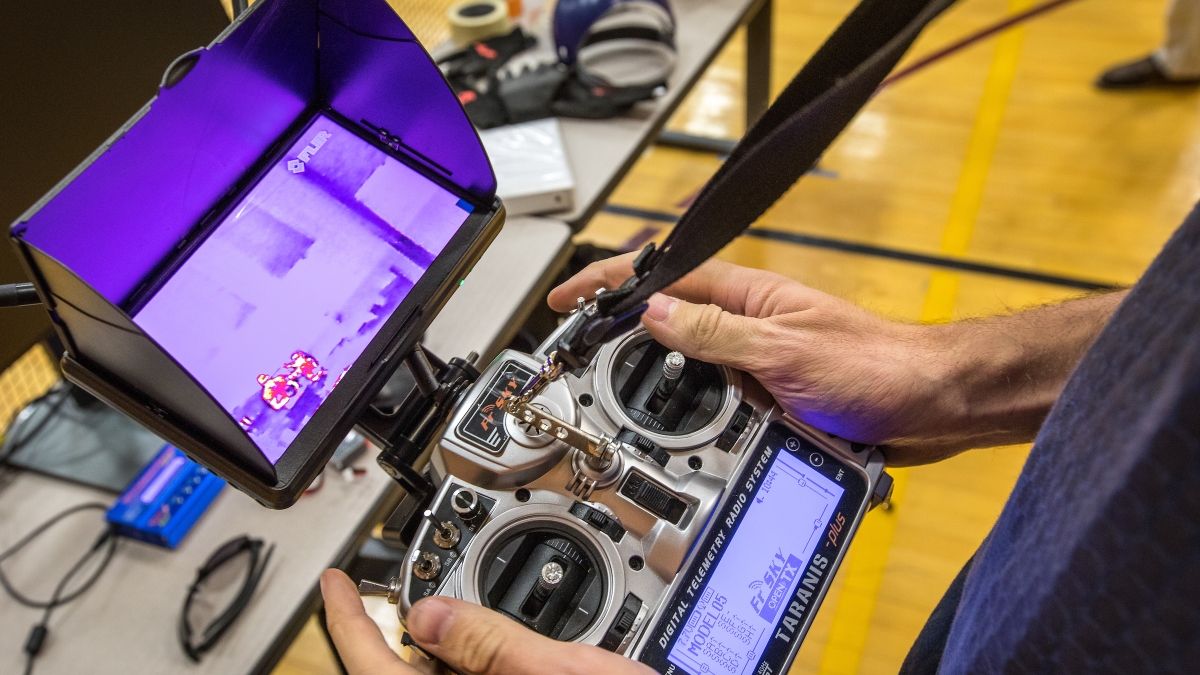ASURE awarded contract to advance unmanned and robotic technologies

ASU Research Enterprise's drone Innovation Challenge in 2018 focused on unmanned systems and robotics.
ASURE has been awarded a contract that could total as much as $42.4 million over the next five years to advance unmanned and robotic technologies and weapons systems.
The Naval Postgraduate School in Monterey, California, awarded $12 million now to the Arizona State University-affiliated applied research lab to solve the initial task and is offering the opportunity for an additional $30.4 million for subsequent tasks. There are nine task groups in total and, according to Naval Postgraduate School, this is the school’s largest task order contract ever awarded for unmanned systems and robotics. It is also the largest contract ASURE has been awarded.
“This is the biggest award we’ve ever had,” said Claudia ElDib, program manager for ASURE, adding that completion of this opportunity could pave the way for additional grants for ASURE.
ASURE is a nonprofit organization and exemplifies a new prototype for the academic applied research lab that leverages ASU’s innovative resources to rapidly solve grand challenges with high-impact solutions for local, state and national government agencies and companies. ASURE’s expertise centers on translating ideas into dual-use solutions for technology, engineering, safety and security sectors, meaning they solve for commercial and military problems.
ASURE will work closely with Ira. A. Fulton Schools of Engineering faculty who want to participate in research, analysis and prototype development of hardware and software for use by U.S. military, civilians and U.S. partner nations. Faculty will focus on artificial intelligence, cyber solutions, weapons payloads, navigation and intelligence sensors and many other areas related to robotics and unmanned technologies.
“This collaboration leverages the multidisciplinary expertise that exists within the Fulton Schools and ASURE’s objective of conducting applied research,” said Kyle Squires, dean of the Fulton Schools at ASU. “Our faculty has made significant progress to achieve broader technological capabilities and understandings of these areas in recent years, so we are eager to work with partners to develop and test robotic and autonomous systems.”
The work is broad and covers a variety of areas so faculty from several specialties can participate, ElDib said. Some of the projects will be classified work, and ASURE can assist faculty who need to obtain credentials to pursue classified work, she said.
Historically, many products that are developed through these types of government research programs later become commonplace in the civilian market — such as plastic containers, GPS systems and cybersecurity, ElDib said.
“Upon completion of the projects, ASURE and ASU would be talked about not just in a naval context but with other government institutions,” she said. “The impact could be profound.”
More Science and technology

Transforming Arizona’s highways for a smoother drive
Imagine you’re driving down a smooth stretch of road. Your tires have firm traction. There are no potholes you need to swerve to…

The Sun Devil who revolutionized kitty litter
If you have a cat, there’s a good chance you’re benefiting from the work of an Arizona State University alumna. In honor of…

ASU to host 2 new 51 Pegasi b Fellows, cementing leadership in exoplanet research
Arizona State University continues its rapid rise in planetary astronomy, welcoming two new 51 Pegasi b Fellows to its exoplanet…

